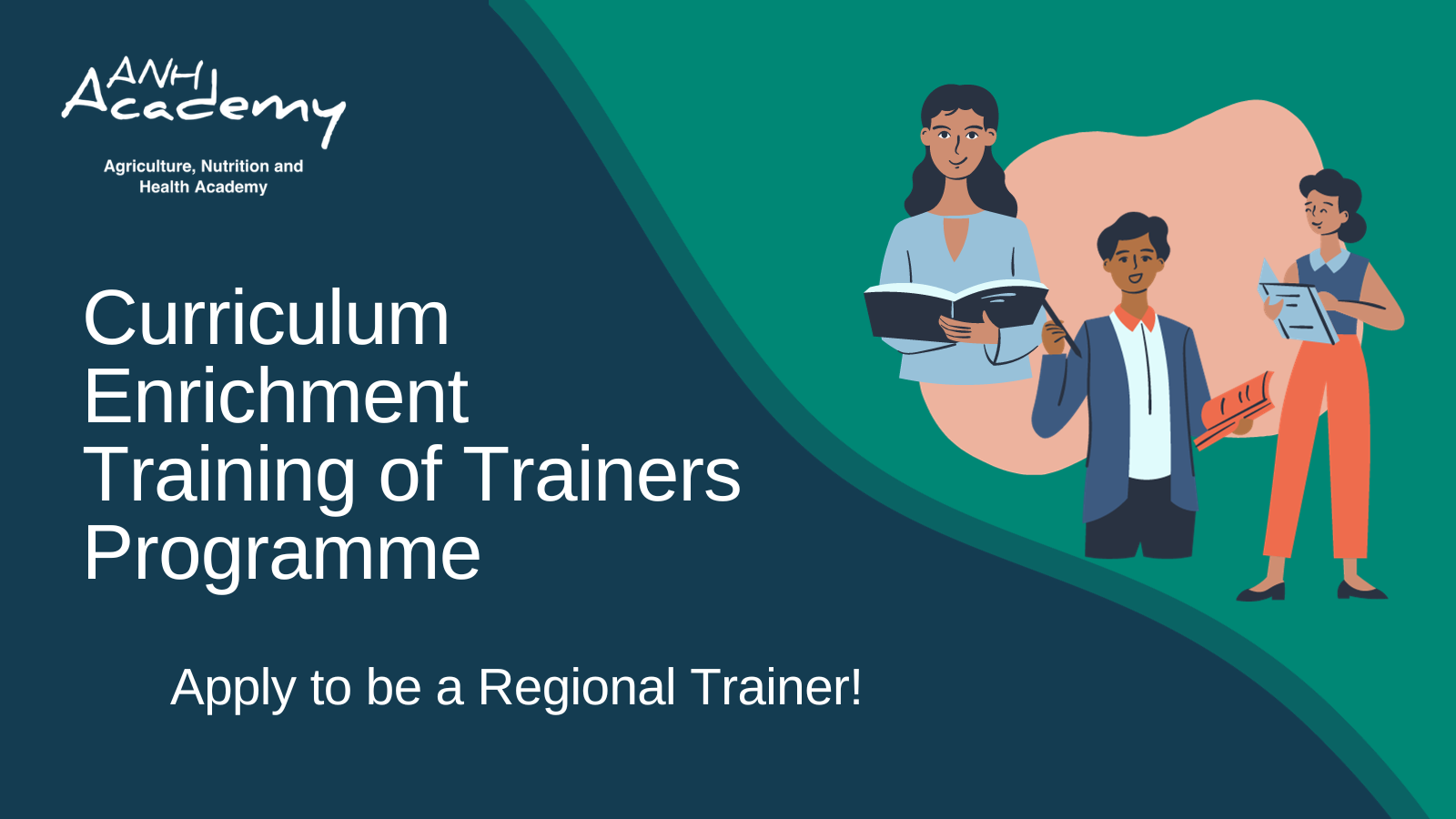The Innovative Methods and Metrics for Agriculture and Nutrition Actions (IMMANA) programme is excited to announce the five recipients of its fourth round of competitive research grants. Each will receive up to £250,000 for a two-year project aimed at validating or developing tools, methods and metrics for measuring agriculture or food system, nutrition and health interactions of importance in low and middle-income countries. Grantees were selected through a lengthy and rigorous process by the IMMANA Independent Panel of Experts and Steering Committee from a pool of 55 applications.
These five projects explore the impact of crisis situations and political economy on food systems, and have developed innovative methods and tools to help researchers, policy makers & practitioners build more resilient and nutrition-sensitive food systems. Learn more about the projects and click through to their pages on our site:
London School of Hygiene & Tropical Medicine, “Using complex systems methods to analyse informal food safety nets in Lebanon”, Lebanon (starting April 2023):
Using participatory complex systems methods, the project seeks to characterise the informal and ad hoc food safety nets in Lebanon, and identify how large food corporations drive and influence that system. It will also determine the usefulness of these methods in emergency situations, and develop a qualitative systems method toolkit for future use in crisis settings.
University of Ghana School of Public Health, “NutriShed: Adapting Foodshed Analysis for Nutrition Security Planning”, Ghana (starting April 2023):
The project will develop a spatially-explicit foodshed-level planning approach to help researchers, practitioners and decision-makers in diagnosing and planning interventions, to ensure stable and resilient supplies of key nutrients in communities.
National Resources Institute, University of Greenwich, “Political Economy Analysis of Food Industry (PEAFI) - unpacking the influence of the food industry on adolescent consumption of ultra-processed foods in Sub-Saharan Africa”, Ghana (starting August 2023):
The project’s overarching objective is to improve the understanding of the political economy of ultra-processed foods (UPF) complex processes and rules that influence consumption among adolescents in Ghana. Anchored in political economy, human geography and public health nutrition analysis, PEAFI provides a suit of methodological guidelines, data analysis plans, interview guides, frameworks to classify power and engagement protocols with diverse stakeholders.
Natural Resources Institute, University of Greenwich & Ghent University, “NUTRI+4AID: Nutritional Postharvest Loss Estimate for Humanitarian Aid”, United Kingdom, Uganda, Zimbabwe (starting January 2023):
NUTRI-P-LOSS was a Round 2 IMMANA Grant project offering an estimation tool for nutritional postharvest losses (NPHL) throughout agricultural value chains. This project will build upon that work and validate the previous tool in a humanitarian setting. The NUTRI+4AID methodology and tool will estimate NPHLs in 'normal' and unstable global contexts, helping practitioners, researchers & policy makers build more resilient and nutrition-sensitive food systems.
Purdue University, Kula Vyema Centre of Food Economics & Cornell University., “Methodological Development for External Food Environment Surveillance Systems (EFESS) around Two Secondary Cities in Kenya”, Kenya (starting June 2023):
This project's overarching goal is to develop a methodology for monitoring the external food environment (EFE), typically found in low- and middle-income countries (LMICs) and created by formal and informal food vendors. An external food environment surveillance system (EFESS) can be used to monitor trends, inform nutrition regulations and policies, capture the impact of shocks to the system in real-time, and serve as an inclusive platform, particularly for informal vendors, who are often undercounted in official labour statistics and absent in policy and governance.
Grants were evaluated on the basis of innovation, scientific excellence and originality, development relevance, translational value and collaborative approaches. Applicants were encouraged to align with findings from the IMMANA Evidence and Gap Map and find unique opportunities to innovate in light of gaps across thematic domains, tools, methods and metrics. Led by the London School of Hygiene & Tropical Medicine (LSHTM), IMMANA Grants are co-funded with UK Aid from the UK government and the Bill & Melinda Gates Foundation.
Helpful links:




